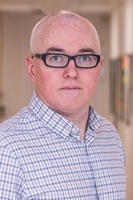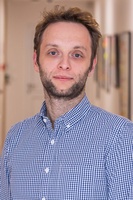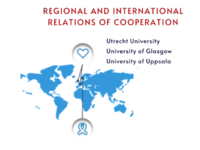International Research Agenda of the Medical University of Gdańsk and the University of Uppsala, Sweden

To improve the international status of its research, MUG has intensified an effort on creating Centers of Scientific Excellence in its structures. An example of this activity is the International Research Agenda (IRA) established in 2018. It is a joint intercollegiate unit of MUG and the University of Uppsala, focusing on research on genetic aberrations acquired during a lifetime as a risk factor of cancer and other diseases. This unit was established owing to funds donated by the Foundation for Polish Science within the program of the International Research Agenda (IRA). The leaders of the MAB Project entitled ‘Mutations acquired during lifetime that lead to increased risk for human disease, with focus on cancer’ (acronym: 3P-MedicineLab – Preventive, Personalized, Precision) are Prof. Jan Dumański (Faculty of Immunology, Genetics and Pathology, University of Uppsala), and Prof. Arkadiusz Piotrowski (Department and Institute of Biology and Pharmaceutical Botany, MUG). 3P Medicine Lab encompasses international teams of researchers who represent diverse scientific knowledges. The unit conducts scientific research and development effort on an international level. Due to the collaboration with an qualified foreign institution, support is gained for the commercialization of results and effective standards of project management are implemented.
Investigation supported as a part of the project concern mostly the significance of PZM (Post- Zygotic Mutations) in the development of breast cancer among women, prostate cancer among men, colon and bladder cancer in both sexes, as well as the Alzheimer disease among men – due to the occurrence of Y chromosome loss. The research focus on the identification of postzygotic mutations, most important from the perspective of vulnerability to these diseases. It requires the collection of several thousand clinical samples, gathered especially for this purpose, from patients with different types of cancers and at different stages of disease advancement. Collected samples are originated, among other, from tumours, lymph nodes, distant metastases, as well as from blood and skin. The purpose of the research is to complete a number of advanced genetic and molecular analyses, in order to determine the type, mechanism, and frequency of PZM occurrence. Such examination are aimed at finding new early pre-clinical biomarkers of risk factors. New biomarkers will be patented and have the opportunity to become the basis of diagnostic tests as well as new therapies.
Offer of the IRA
As part of the existing and constantly expanding oncology collection, IRA can offer scientific and service cooperation consisting in:
- Providing access to small fragments of tissues for RNA/DNA isolation from oncological samples collected so far,
- Providing high-quality DNA/RNA aliquots isolated from some of the cancer samples collected so far,
- Isolation of high-quality DNA/RNA from the collected tissue samples according to the standardized laboratory procedures existing in the IRA,
- Training people interested in basic molecular biology techniques including DNA/RNA isolation from various types of tissues and cell lines,
- Preparation of NGS libraries for exome, genome, or transcriptome sequencing from previously obtained oncological samples,
- Providing available, pseudonymized medical data for selected cancer donors.
More information in the tab Oncology collection of the IRA.
Contact
International Research Agenda
Medical University of Gdańsk
M. Sklodowkiej Curie 3a Street
80-210 Gdańsk
 |
Prof. Jan Dumański Research Group: Loss of chromosome Y and human disease Director/Principal investigator |
Phone: 58 349 18 50 jan.dumanski@gumed.edu.pl |
 |
Prof. Arkadiusz Piotrowski Research Group: Mosaicism for autosomal post-zygotic mutations Director/Principal investigator |
Phone: 58 349 18 50 arkadiusz.piotrowski@gumed.edu.pl |
 |
Natalia Filipowicz, Ph.D. Research Group: Biobanking facility coordinator senior post-doc |
Phone: 58 349 18 52 natalia.filipowicz@gumed.edu.pl |
 |
Dr. Habil. Jakub Mieczkowski Research Group: Bioinformatics group – Chromatin structures reflecting cellular states Principal investigator |
Phone: 58 349 18 50 jakub.mieczkowski@gumed.edu.pl |
